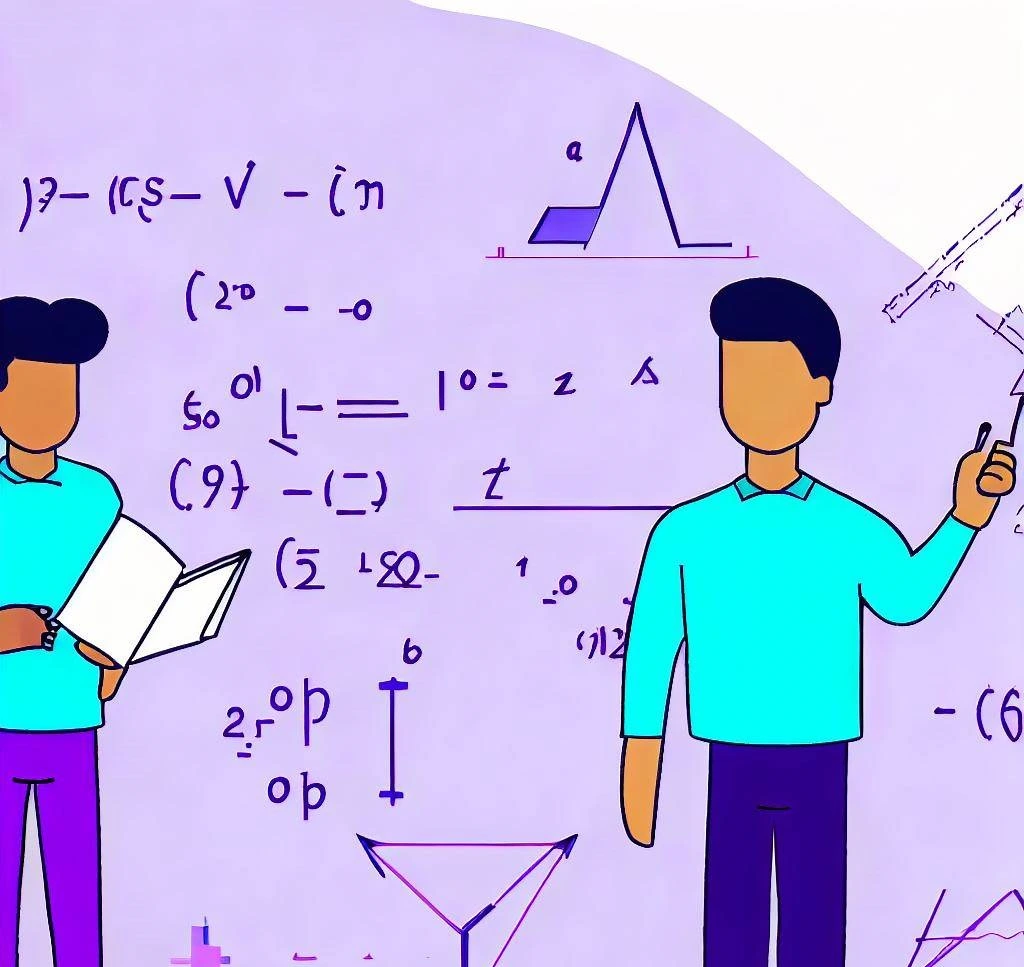Tips for Getting a High Grade on Your Probability Theory Assignments

The completion of probability theory assignments requires consistent practice in order to be successful. Your ability to solve problems and your understanding of a variety of different concepts will both improve if you practice solving a wide range of problems, from the simplest to the most difficult. You can identify areas in which you need improvement by reviewing your mistakes and seeking feedback, which will also help you refine your skills further.

Understand the Fundamentals of Probability Theory
It is absolutely necessary to have a strong foundation in the fundamental ideas and principles of probability theory in order to be successful in the probability theory assignments you will be given.
Here are three crucial aspects that need your attention:
- Comprehend Probability Basics: To begin, make sure you have a solid grasp of some of the most fundamental concepts of probability, such as sample space, events, and probability functions. Be sure that you are able to distinguish between independent and dependent events, in addition to conditional probability.
- Learn Probability Distributions: In the field of probability theory, probability distributions are an extremely important concept. Learn the fundamentals of the most common types of distributions, such as the binomial, Poisson, and normal distributions. Gain an understanding of their characteristics, mathematical models, and practical uses.
- Master Counting Techniques: The study of probability relies heavily on counting strategies, including permutations and combinations, amongst others. Exercise your problem-solving skills by working through exercises involving counting arrangements, selections, and repetitions. Using these strategies, you will be able to more effectively solve difficult problems involving probability.
Practice Problem Solving Regularly
The ability to improve your problem-solving skills in probability theory relies heavily on consistent practice. You can improve your ability to effectively apply concepts and techniques if you engage in consistent problem-solving exercises. When you regularly practice problem-solving, it helps you become familiar with the various types of probability problems and the strategies required to solve them. It allows you to approach new and difficult tasks with increased self-assurance, which makes it easier for you to take on those responsibilities.
Consistent practice enables you to hone your strategies for problem-solving and recognize any areas in which you may require additional assistance or comprehension. You can make significant strides towards improving your overall performance by first acknowledging the areas in which you struggle and then directing your attention and energy towards improving those areas. Regular practice helps you develop a deeper understanding of the concepts underlying probability theory as well as the practical applications of those concepts. Your capacity for analytical thinking, logical reasoning, and the formation of connections between disparate ideas will all improve as a result of this. You will have a much better chance of getting a good grade in probability theory if you make solving problems a consistent part of your study routine. This will allow you to hone your skills, become more effective when completing assignments, and significantly boost your chances of getting a good grade. Here are two strategies to enhance your problem-solving skills:
Solve a Variety of Problems
It is essential to put yourself in a variety of different problem-solving situations in order to achieve success in the probability theory assignments you are given. Start off with more straightforward activities, and work your way up to more difficult challenges as you progress. Finding a diverse collection of practice problems can be made easier by consulting online resources, textbooks, and previously completed homework assignments. You will not only strengthen your understanding of a variety of concepts by working through a variety of problems, but you will also become more comfortable applying a variety of strategies and techniques as you do so. Your self-assurance and capability in the field of probability theory will both improve as a result of this experience, which will allow you to develop a flexible approach to problem-solving that can be utilized in a variety of settings.
Seek Feedback and Review Mistakes
When you are practicing problem-solving, it is essential to conduct a critical analysis of your solutions and to ask for feedback from your instructors or tutors. Spend some time reflecting on your blunders and pinpointing the aspects of your performance in which you fell short. You will be able to focus your efforts more effectively if you have a solid understanding of your shortcomings and potential growth areas. You can gain insights into alternative approaches and strategies if you seek feedback from knowledgeable sources and listen to what they have to say. You can improve your ability to solve problems and avoid making errors that are similar in nature in future assignments if you actively review what you've done wrong and learn from it. Accept helpful criticism as an opportunity for personal development and make use of it to improve your understanding of the concepts involved in probability theory and how they can be applied in real-world situations.
Take Advantage of Available Resources
The theory of probabilities can be a difficult subject, but you don't have to tackle it by yourself if you don't want to.
The following are three resources that will assist you in your educational pursuits:
- Textbooks and Online Materials
- Study Groups and Peer Collaboration
- Professor's Office Hours
A trustworthy textbook on probability theory can be an extremely helpful resource. Try to find textbooks that not only provide plenty of practice problems but also explain the concepts very clearly. In addition, there are a wealth of online resources available, such as video tutorials, lecture notes, and interactive simulations, that can help you better understand the material and give you additional opportunities to practice it.
Participating in a study group or working on projects with other students who are also engaged in the study of probability theory can be extremely beneficial. Your level of comprehension and command of the material can be improved by having in-depth conversations about various ideas, working through problems as a group, and elaborating on concepts to one another.
Use the office hours that your professor makes available to you. These one-on-one sessions provide an excellent opportunity to clarify doubts, seek additional explanations, and gain insights into the assignments that are to be completed. Your dedication will be clear to see if you keep the professor updated on your progress, and they may even be able to offer pointers on how to approach certain questions pertaining to the assignment.
Prepare Effectively for Examinations
Examinations, in addition to the assignments you've turned in, contribute significantly to the overall value of your grade. Exams in probability theory can be difficult to effectively prepare for,
But here are three strategies that can help:
- Review Lecture Notes and Assignments
- Practice with Past Exams
- Create a Study Plan
Be sure to go back over your class notes and finished assignments on a regular basis. This will help you solidify your understanding of the concepts and give you a strong foundation from which to study for the test. Pay close attention to the examples that are being discussed in the classroom, as they will frequently provide insights into the solution of problems that are similar.
Get your hands on some old test questions and put your knowledge to the test by working through the problems. You will become accustomed to the format, the time constraints, and the different types of questions that may be asked as a result of doing this. You will also be able to identify any gaps in your knowledge, which will enable you to concentrate on topics that need more attention than they currently receive.
Create a study schedule that allows for adequate time to be spent on revising for the test, practising problem-solving skills, and reviewing previously learned material. When the time comes for the exam, if you have broken the material down into manageable chunks and set specific goals for yourself, you will be able to ensure that you have covered all of the necessary topics and feel prepared for it.
Conclusion
In Conclusion, getting good grades in your probability theory homework requires you to have a firm grasp on the fundamentals of the subject, to engage in consistent problem-solving practice, to make full use of the resources at your disposal, and to put in sufficient effort to study for your exams. You can build a strong foundation for tackling more difficult problems if you have a solid understanding of the fundamentals of probability theory, such as sample space, events, and probability functions, and if you are an expert in counting techniques. Your problem-solving skills will improve as you engage in regular practice of problem-solving, which should include solving a variety of problems and seeking feedback. This will help you identify areas in which you can make improvements.
Additional support and insights can be gained by taking advantage of the various resources that are available, such as textbooks, online materials, study groups, and office hours offered by the professor. These resources deepen your comprehension, make any lingering questions more clear, and present alternative points of view on difficult subjects. You can ensure that you are well-prepared for assessments by engaging in effective exam preparation, which includes things like reviewing lecture notes, solving old exams, and developing a study plan.
You will be able to maximize your performance in the probability theory assignments you are given and increase your chances of obtaining a high grade if you put these suggestions and techniques into practice. Accept the difficulties that you will face, find ways to keep yourself motivated, and approach your homework and tests with a positive and determined frame of mind. You can excel in probability theory and achieve the academic success you desire if you commit yourself fully and remain steadfast in your efforts. I hope all your assignments on probability theory go smoothly